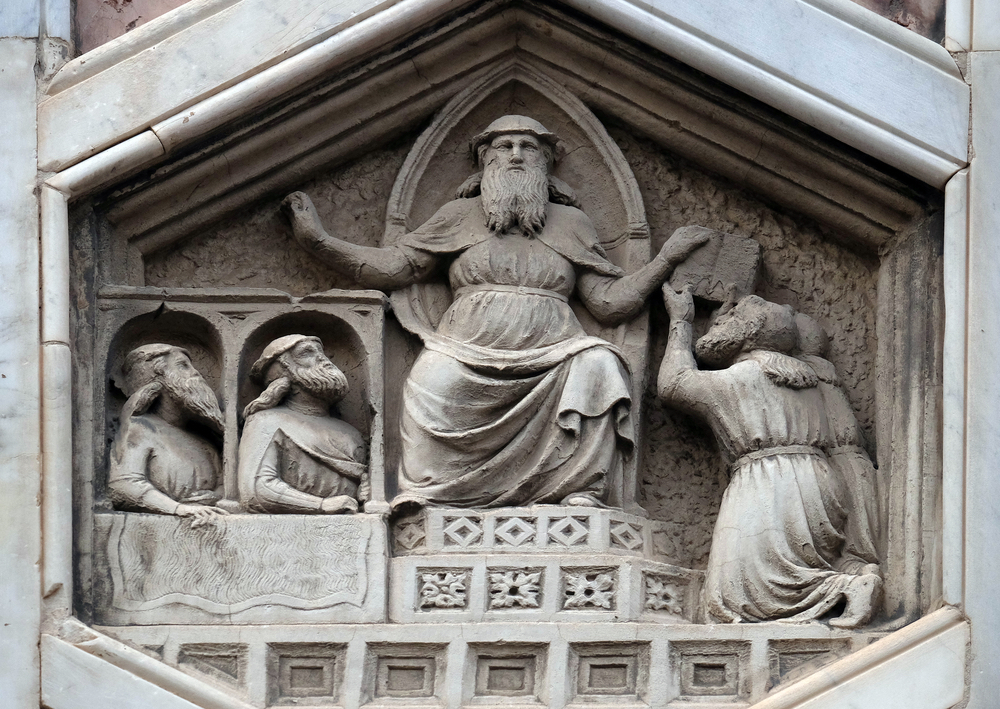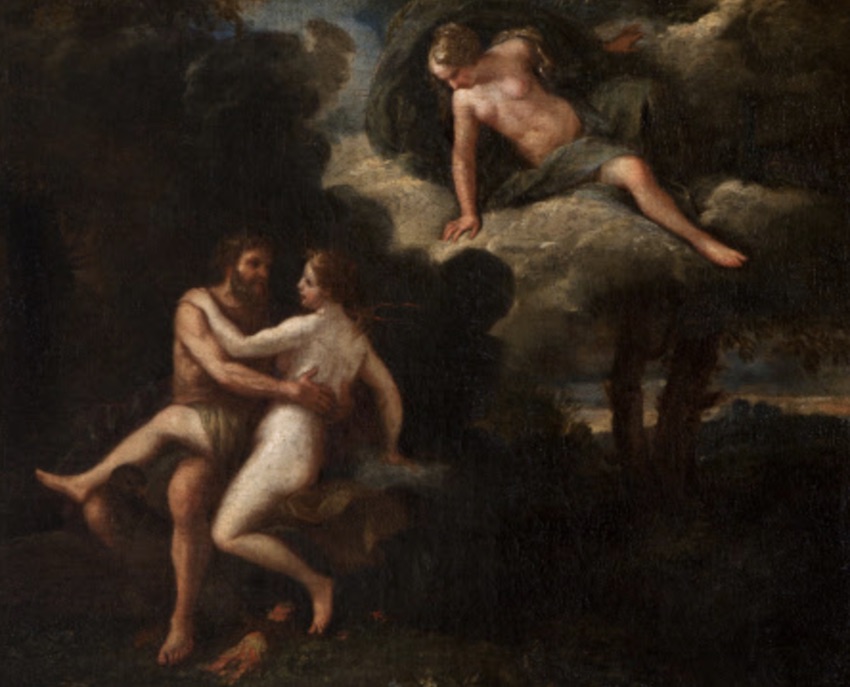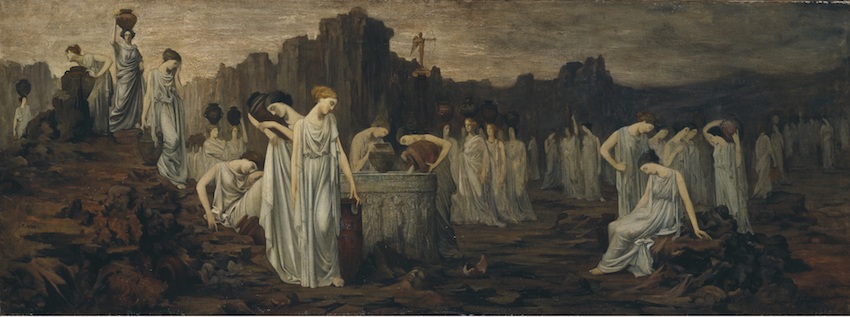
Relief from Giotto's Campanile
Early Greek myth had many Adams, as most regions had their own "first man." As the myths tended to merge into a panhellenic version, one of these first men (Deukalion, son of Prometheus) took precedence while the others faded into obscurity. Greek myth in general was not overly concerned with identifying the original mortal.
Zeus and Io

Jupiter and Io, espied by Juno Italian School
Four generations later another Inachos was king of Argos, and his daughter Io was a priestess of Hera. Zeus appeared to her in dreams and asked her to come to the meadow of nearby Lerna and become his lover. Hera, Zeus' jealous wife, changed Io into a half-cow, half-woman, and sent a stinging insect called the Oistros to chase her out of Argos. In her wanderings Io swam in the sea west of Greece (that's why it is called the Ionian Sea) and also swam across the waterway which separates Europe and Asia (that's why it is called the Bosphoros, which means "Cow-Crossing).
Eventually Io came to Egypt, where Zeus breathed on her and touched her; she regained her human form and became pregnant with a son Epaphos (whose name means "Touch"). Io married the king of Egypt and Epaphos married Memphis, a daughter of the river-god Nile. Their daughter Libya had an affair with Poseidon and gave birth to the twins Agenor and Belos.
The birth of twins is a recurrent and important occurrence in Argive myth. Almost always they quarrel, and then one stays as king while the other leaves to start a new kingdom elsewhere. In the case of Belos and Agenor, Belos stayed and ruled Egypt and Agenor went to Phoenicia.
It's at this point that the myths of Crete and Thebes
are derived from the Argive story. Agenor's daughter Europa was carried
off by Zeus to Crete, and their son was the famous king Minos. When
Agenor sent his sons to look for their missing sister, one of them, Kadmos,
eventually arrived in Greece and started the city of Thebes.
Danaos and his
Daughters

Fernand Sabatté - The daughters of Danaus (c.1900)
Meanwhile Belos had twin sons, Aigyptos and Danaos. Danaos had fifty daughters, and Aigyptos had fifty sons, who were commanded by their father to marry their fifty cousins. At Danaos' urging, his daughters (the Danaids) refused to marry. Their father then invented big ships, so that he and his daughters could sail back to Argos, their ancestral home. They were pursued by their cousins, accompanied by an Egyptian army, and eventually (perhaps because of a war) were forced to marry. On the wedding night Danaos gave each of his daughters a dagger and commanded them to kill their new husbands while they slept. All the girls obeyed their father except one, Hypermestra, who fell in love with her new husband Lynkeus and spared his life. Danaos then held a race to obtain husbands for his other daughters; there were too few contestants (understandably), so he had to arrange a second race to marry them all off.
Belos is the Greek name for Baal, the Canaanite fertility god who appears in the Old Testament.
